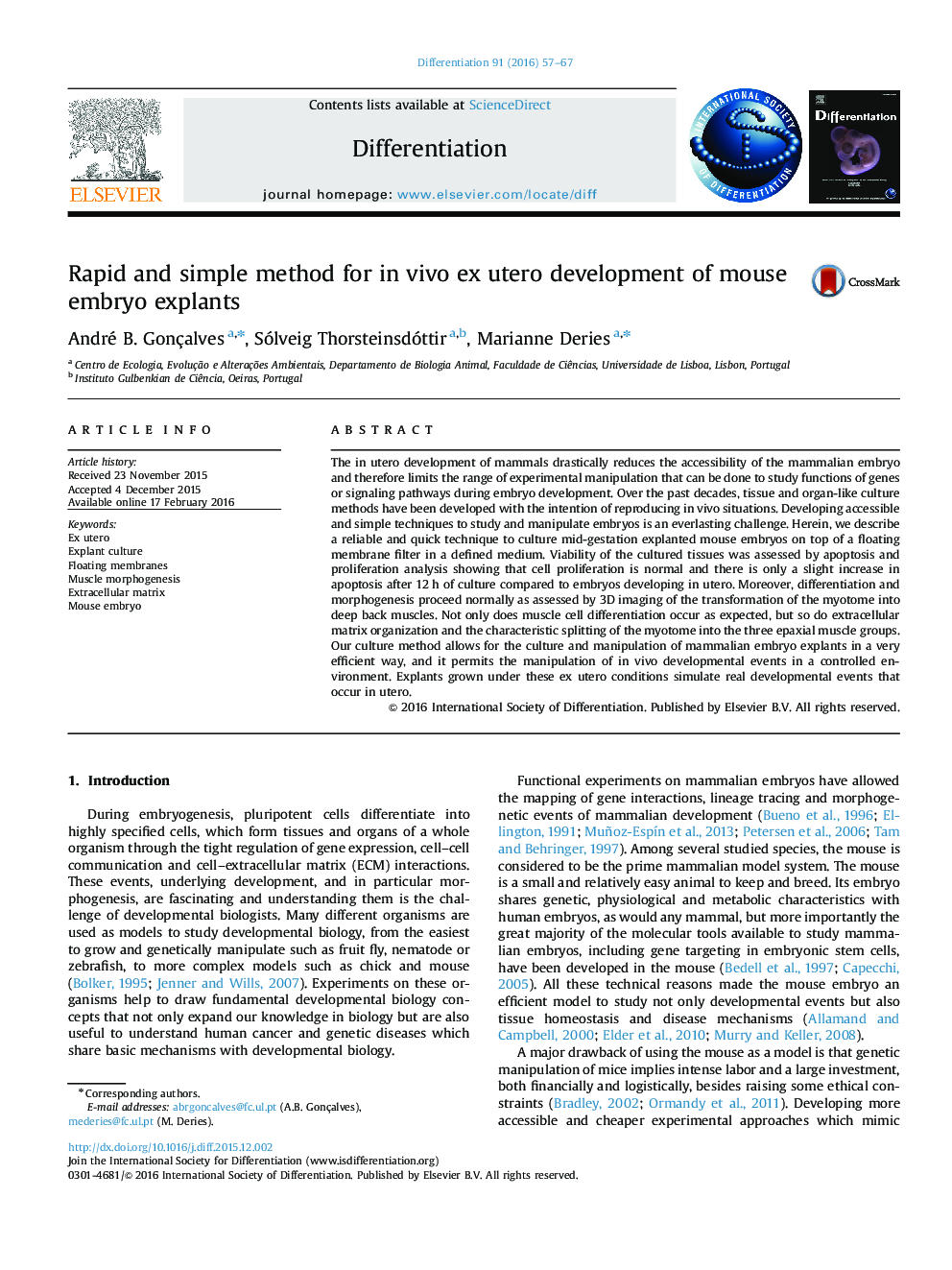| Article ID | Journal | Published Year | Pages | File Type |
|---|---|---|---|---|
| 2119281 | Differentiation | 2016 | 11 Pages |
•A simple method of mouse embryo culture in a defined medium is described.•Proliferation and differentiation proceed normally during explant culture.•Morphogenesis of axial muscles and their extracellular matrix advances as in utero.
The in utero development of mammals drastically reduces the accessibility of the mammalian embryo and therefore limits the range of experimental manipulation that can be done to study functions of genes or signaling pathways during embryo development. Over the past decades, tissue and organ-like culture methods have been developed with the intention of reproducing in vivo situations. Developing accessible and simple techniques to study and manipulate embryos is an everlasting challenge. Herein, we describe a reliable and quick technique to culture mid-gestation explanted mouse embryos on top of a floating membrane filter in a defined medium. Viability of the cultured tissues was assessed by apoptosis and proliferation analysis showing that cell proliferation is normal and there is only a slight increase in apoptosis after 12 h of culture compared to embryos developing in utero. Moreover, differentiation and morphogenesis proceed normally as assessed by 3D imaging of the transformation of the myotome into deep back muscles. Not only does muscle cell differentiation occur as expected, but so do extracellular matrix organization and the characteristic splitting of the myotome into the three epaxial muscle groups. Our culture method allows for the culture and manipulation of mammalian embryo explants in a very efficient way, and it permits the manipulation of in vivo developmental events in a controlled environment. Explants grown under these ex utero conditions simulate real developmental events that occur in utero.
